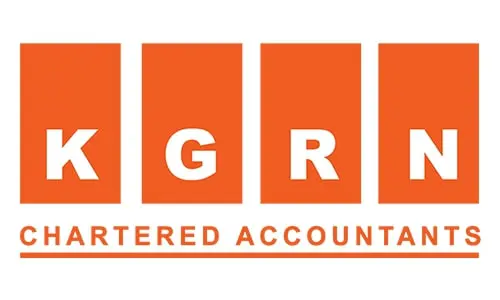Closing down a business is never an easy decision, but when it’s time to let go of a company in the UAE, the process can be overwhelming. Whether it’s due to financial struggles or personal reasons, company liquidation in the UAE requires thorough planning and execution to ensure a smooth closure. In this blog, we will provide a comprehensive guide to understanding the process of company liquidation in the UAE.
We will cover the reasons for liquidation, the steps involved, and the consequences of not following the proper procedures. Whether you’re a business owner facing liquidation or simply curious about the process, this blog will provide you with the knowledge and resources needed to navigate the process successfully.
Looking for additional information about the UAE company liquidation process?
Types of liquidation process in UAE:
- Voluntary Liquidations: A company’s shareholders may decide to dissolve a solvent company, or the directors of an insolvent company may decide to halt operations and sell off the company’s assets to pay off its creditors.
- Compulsory Liquidations: If a business’s obligations aren’t paid on time, creditors may ask the courts to liquidate the business so they may get reimbursed. The courts may determine that a business must liquidate and sell its assets in order to settle its debt.
Even if there are no unpaid obligations, is liquidation still required in the UAE?
It is always best to legally dissolve a business rather than just letting your trade licence expire, even if there are no outstanding debts to creditors. When formally liquidating a company, a number of procedures must be followed. Ignoring them could result in a variety of fines as well as the “blacklisting” of the company by UAE government officials, along with its directors and shareholders. This could harm their capacity to start another firm in the future or have an effect on the businesses they are already involved in.
What is a liquidator’s function?
Typically a chartered accountancy or audit firm, a liquidator is a person or company registered in the UAE who is tasked with acting on behalf of the company to sell its assets in order to raise money to pay off any unpaid debts. In the event of a compulsory liquidation, a liquidator may be appointed by the courts or by the shareholders via a resolution. At the beginning of the process after being appointed, the liquidator will issue a formal letter of acceptance. The preparation of a statement of affairs and the liquidator’s report, which are necessary to wrap up the liquidation process, will occur once all of its duties have been completed.
Company Liquidation Process in UAE
When a business in the United Arab Emirates (UAE) faces insurmountable challenges or decides to cease operations, the process of company liquidation comes into play. Understanding the intricacies of the liquidation process is crucial to ensure a smooth and legally compliant wind-up of the company’s affairs. In this blog post, we will walk you through the essential steps and requirements involved in the company liquidation process in the UAE.
- Determine the Liquidation Method: There are two primary methods for company liquidation in the UAE: voluntary liquidation and compulsory liquidation. Voluntary liquidation occurs when the shareholders or directors make a collective decision to dissolve the company. On the other hand, compulsory liquidation is initiated by external entities, such as creditors or the court, due to the company’s inability to meet its financial obligations.
- Appoint a Liquidator: Once the decision to liquidate the company is made, the next step is to appoint a liquidator. In the case of voluntary liquidation, the shareholders appoint a liquidator, while in compulsory liquidation, the court typically appoints one. The liquidator’s role is to oversee the entire liquidation process, including the sale of assets, repayment of debts, and distribution of remaining funds to stakeholders.
- Notify Relevant Authorities: Following the appointment of a liquidator, it is crucial to notify the relevant authorities in the UAE. This includes the Department of Economic Development (DED), the Ministry of Economy, and any other government entities that the company is registered with. Providing proper notification ensures compliance with legal requirements and allows for the removal of the company from official records.
- Settlement of Debts and Obligations: Liquidating a company involves settling all outstanding debts and obligations. The liquidator is responsible for notifying creditors, collecting outstanding receivables, and paying off debts using the company’s available assets. It is important to note that the liquidator must follow a specific order of priority when distributing funds, giving priority to secured creditors before unsecured creditors.
- Selling Company Assets: As part of the liquidation process, the company’s assets, including property, inventory, and equipment, are sold. The proceeds from these sales are then used to settle outstanding debts and obligations. The liquidator is responsible for ensuring that assets are properly valued, marketed, and sold in a fair and transparent manner, often through public auctions or private sales.
- Tax and Legal Compliance: During the liquidation process, it is crucial to comply with all tax and legal requirements in the UAE. This includes filing the necessary tax returns, obtaining clearances from relevant government authorities, and canceling any licenses or permits held by the company. Failure to comply with these obligations may lead to penalties and legal complications.
- Distribution of Remaining Funds: Once all debts, obligations, and expenses related to the liquidation process have been settled, the remaining funds, if any, are distributed among the shareholders or partners in accordance with their respective ownership percentages. This distribution is done in accordance with the company’s articles of association and applicable laws and regulations.
Liquidating a company in the UAE can be a complex and time-consuming process, requiring careful attention to legal and financial considerations. By following the necessary steps, appointing a qualified liquidator, and ensuring compliance with local regulations, businesses can navigate the company liquidation process effectively. Seeking professional advice and guidance from legal and financial experts experienced in UAE company law can significantly facilitate the process and help mitigate potential challenges along the way.
How can KGRN Chartered Accountants can help?
Because companies must coordinate with numerous outside parties and authorities to get everything done on time, the liquidation process can be time-consuming and expensive. Missing any step or document will result in unneeded delay and complexity. In accordance with the client’s needs, KGRN provides liquidation services for all UAE entities, including LLCs, free zone companies, and offshore companies. These services range from full liquidation to assistance with a particular step or steps in the process.
FAQ’s – Company Liquidation in UAE
What is company liquidation in UAE?
Company liquidation is the process of closing down a business in the UAE. It involves the sale of assets, payment of debts, and cancellation of the company’s license.
What are the reasons for company liquidation in UAE?
There are various reasons for company liquidation in the UAE, including bankruptcy, insolvency, loss-making, and expiration of the business term. Also, in some cases, business owners may opt to close their company voluntarily due to personal reasons.
How long does the company liquidation process take in UAE?
The company liquidation process in the UAE typically takes three to six months, depending on the complexity of the business and the cooperation of stakeholders.
What are the consequences of not following the proper procedures for company liquidation in UAE?
Not following the proper procedures for company liquidation in the UAE may result in legal and financial consequences, including fines, blacklisting, and legal actions against the company’s owners and directors. It can also hinder the ability to conduct future business in the UAE.





